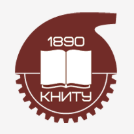Introduction
Kazan National Research Technological University is a well-known technical university under the Russian Federation. Its work combines the traditions of classical universities with the latest educational technologies, and is known for training professionals in various fields from aviation to mechanical engineering.
Overview
Student size: The school currently has more than 27,000 undergraduate and graduate students, as well as 900 doctoral and 100 postdoctoral students from Russia and other countries.
Faculty: The school has more than 300 full-time professors, doctors of science, and 800 associate professors and doctors. The teachers have profound academic attainments and rich practical experience. Nearly 50% of them have doctoral degrees, and many teachers have also exchanged and cooperated in top academic institutions at home and abroad.
History and establishment time
The history of the school can be traced back to 1890, when the Ministry of Education of the Russian Empire issued a resolution to establish a comprehensive secondary technical and chemical science college and a primary technical college with chemical engineering, mechanical engineering and civil engineering departments. In 1897, Kazan Polytechnic Institute officially opened, and later became Kazan Polytechnic Institute in 1919. In 1930, Kazan State Institute of Technology was established on this basis. From 1935 to 1992, it was called Kazan State Institute of Chemical Technology named after Kirov. In 1992, it obtained university status and was renamed Kazan State University of Technology. In 2010, it obtained national research university status and was renamed Kazan State Research University of Technology in 2011.
School Strength
Teaching Achievements: Since its establishment, the school has cultivated many outstanding talents, including scientists, politicians and successful businessmen among its graduates, and has made important contributions to the development of Russia and other countries.
Scientific Research Cooperation: The school cooperates with many large and leading enterprises in Russia, actively conducts scientific research, and has extensive cooperation and exchanges with universities and research institutions in Europe, Asia, South America and other places to jointly promote scientific and technological progress and the development of education. At the same time, the school is also one of the six Russian member universities of the Eurasian Pacific University Alliance (UNINET).
Institutional nature
Public university.
Educational philosophy
Adhering to the concept of "innovation, practice, collaboration, and service", focusing on the combination of theoretical learning and practical application, and committed to cultivating innovative talents and high-end technical talents, emphasizing the combination of education and actual social needs, focusing on the cultivation of teacher-student relationships, building a good communication platform, and enhancing the understanding and communication between teachers and students through a number of activities.
Key laboratories and disciplines
Key laboratories: The school has 16 research institutes and laboratories, covering materials, electronics, information technology, machinery, chemistry and other fields.
Key disciplines: Chemistry and polymer composite materials technology, high-energy materials chemistry and technology, comprehensive processing of hydrocarbon resources, nanotechnology and nanomaterials, energy and resource conservation technology of advanced materials are the school's key research areas, and mechanical design and manufacturing technology is also one of the school's key disciplines, including mechanical engineering, manufacturing engineering, light industry machinery, materials science and other directions.
Department
The school has 15 Academic and research institutions, including the Institute of Chemical Engineering and Technology, the Institute of Petrochemical and Nanotechnology, the Institute of Mechanical Engineering Chemistry and Petrochemical Industry, the Institute of Polymers, the Institute of Light Industry Fashion and Design, the Institute of Automation Control Systems and Information Technology, the Institute of Management Economics and Social Technology, the Institute of Food Engineering and Biotechnology, etc.
Ranking
In the QS World University Rankings, it is in the 1201-1400 range, and in the QS Emerging Europe and Central Asia region, it is ranked 168.
Expenses
Tuition fees: Undergraduate tuition fees are about US$1,500/year, postgraduate engineering course tuition fees are about US$2,000/year, and master's tuition fees are about US$4,000/year.
Accommodation fees: A double room in a student apartment is about US$50/month, and renting a house in Kazan is US$30-100/month.
Insurance premiums: Foreign students need to apply for medical insurance and accident insurance, medical insurance is about US$150/year, and accident insurance is about US$30/year.
Campus
Teaching facilities: The school has 7 There are 10 teaching buildings equipped with modern teaching and scientific research equipment, as well as preparatory departments, continuing education centers, regional information technology centers, science and technology libraries, etc. In addition, there are 10 science and technology centers and 3 internship manufacturing institutions, providing students with good learning and practical conditions.
Living facilities: The school has 7 student dormitories and student apartments, as well as a sports camp with complete sports facilities, including 5 indoor gymnasiums, which can provide students with comfortable accommodation and rich extracurricular life.
-

Peter the Great St.Petersburg Polytechnic University
-
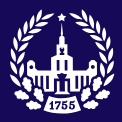
Moscow State University M. V. Lomonosov
-
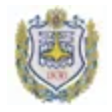
Bauman Moscow State Technical University
-
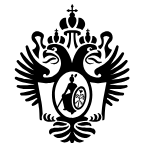
St. Petersburg State University
-

Tomsk State University
-

Peoples' Friendship University of Russia
-
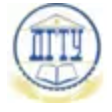
Don State Technical University
-
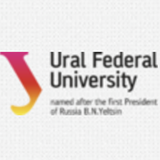
Ural Federal University
-

Moscow Institute of Physics and Technology
-
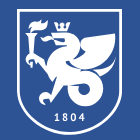
Kazan Federal University
-

Mesoamerican University
-

Istmo University
-

Mariano Galvez University of Guatemala
-

Regional University of Guatemala
-

Galileo University
-

Francisco Marroquín University
-

Rafael Landívar University
-

University of the Valley of Guatemala
-

University of San Carlos of Guatemala
-

Technological Institute of Tlaxcala Plateau
-

Golfo University
-

Technological University of South Sonora
-

Technological University of Huejotzingo
-

Tizimín Institute of Technology
-

Chilpancingo Institute of Technology

